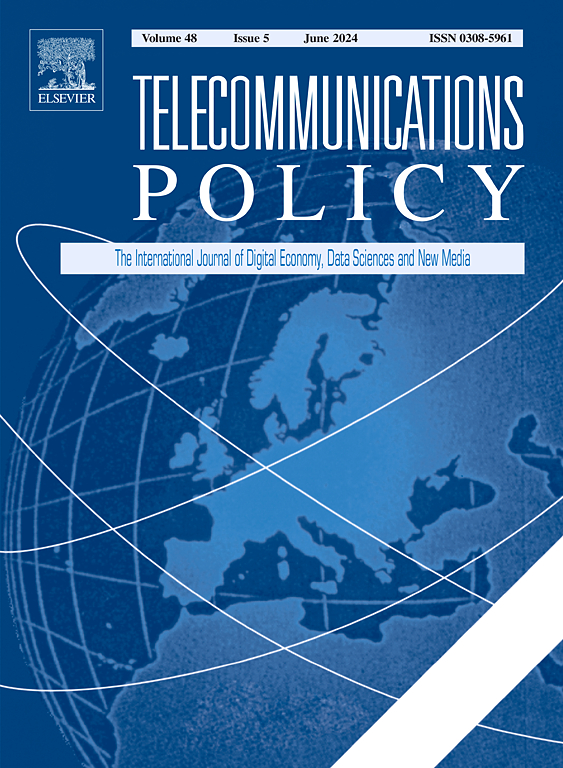Beyond infrastructure: Internet ecosystem resilience and the public good
IF 6.4
2区 管理学
Q1 COMMUNICATION
引用次数: 0
Abstract
Telecommunications networks have become one of modern society's critical infrastructures (CIs): things required for everyday life and without which widespread disruption can be expected. Historically, the responsibility for ensuring the resilience of their own infrastructures has lain with the individual network operators. However, the complex ways in which economic and social systems now depend crucially on the efficient functioning of an internet system comprised of multiple different operators across the three internet layers creates an additional value of network resilience that will not be adequately captured in the incentives facing any single operator alone. In these circumstances, society benefits from some collective co-ordination to address the externalities.
As befits a complex nexus of interacting systems, this paper provides a multidisciplinary exploratory examination of the concept of internet ecosystem resilience and its relationship to (foundations in) telecommunications resilience given the challenges posed by increasing systemic complexity. It finds existing arrangements addressing both physical infrastructure and cybersecurity resilience leave important gaps in internet ecosystem resilience, particularly when addressing the wider social and economic consequences of ecosystem interruption. More research into these consequences is indicated, and attention should also be given to addressing the gaps in funding network infrastructure resilience to address continuity in service and benefits accruing from application layer resilience when this is left to network infrastructure providers alone.
基础设施之外:互联网生态系统的弹性和公共利益
电信网络已经成为现代社会的关键基础设施之一:日常生活所需的东西,没有它,广泛的破坏是可以预期的。从历史上看,确保自身基础设施弹性的责任一直落在各个网络运营商身上。然而,经济和社会系统现在的复杂方式主要依赖于由三个互联网层的多个不同运营商组成的互联网系统的有效运作,这创造了网络弹性的额外价值,而任何单个运营商单独面临的激励措施都无法充分体现这一价值。在这种情况下,社会可以从解决外部性的某种集体协作中获益。鉴于系统复杂性的增加所带来的挑战,本文对互联网生态系统弹性的概念及其与电信弹性的关系(基础)进行了多学科的探索性研究,以适应相互作用系统的复杂关系。报告发现,解决物理基础设施和网络安全弹性的现有安排在互联网生态系统弹性方面留下了重要空白,特别是在解决生态系统中断带来的更广泛的社会和经济后果时。对这些后果进行更多的研究表明,还应注意解决网络基础设施弹性资金缺口,以解决服务连续性问题,并在仅留给网络基础设施提供商时从应用层弹性中获得收益。
本文章由计算机程序翻译,如有差异,请以英文原文为准。
求助全文
约1分钟内获得全文
求助全文
来源期刊

Telecommunications Policy
工程技术-电信学
CiteScore
10.80
自引率
12.50%
发文量
122
审稿时长
38 days
期刊介绍:
Telecommunications Policy is concerned with the impact of digitalization in the economy and society. The journal is multidisciplinary, encompassing conceptual, theoretical and empirical studies, quantitative as well as qualitative. The scope includes policy, regulation, and governance; big data, artificial intelligence and data science; new and traditional sectors encompassing new media and the platform economy; management, entrepreneurship, innovation and use. Contributions may explore these topics at national, regional and international levels, including issues confronting both developed and developing countries. The papers accepted by the journal meet high standards of analytical rigor and policy relevance.
 求助内容:
求助内容: 应助结果提醒方式:
应助结果提醒方式:


